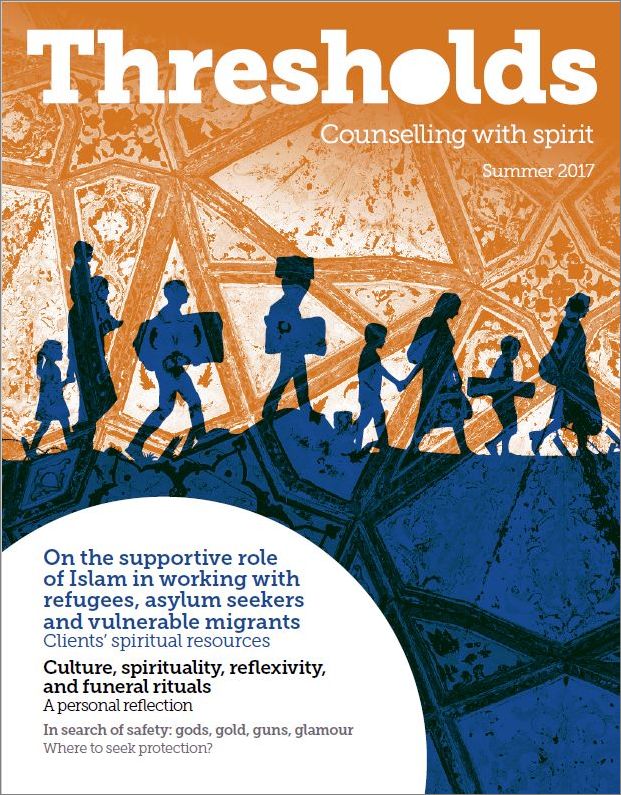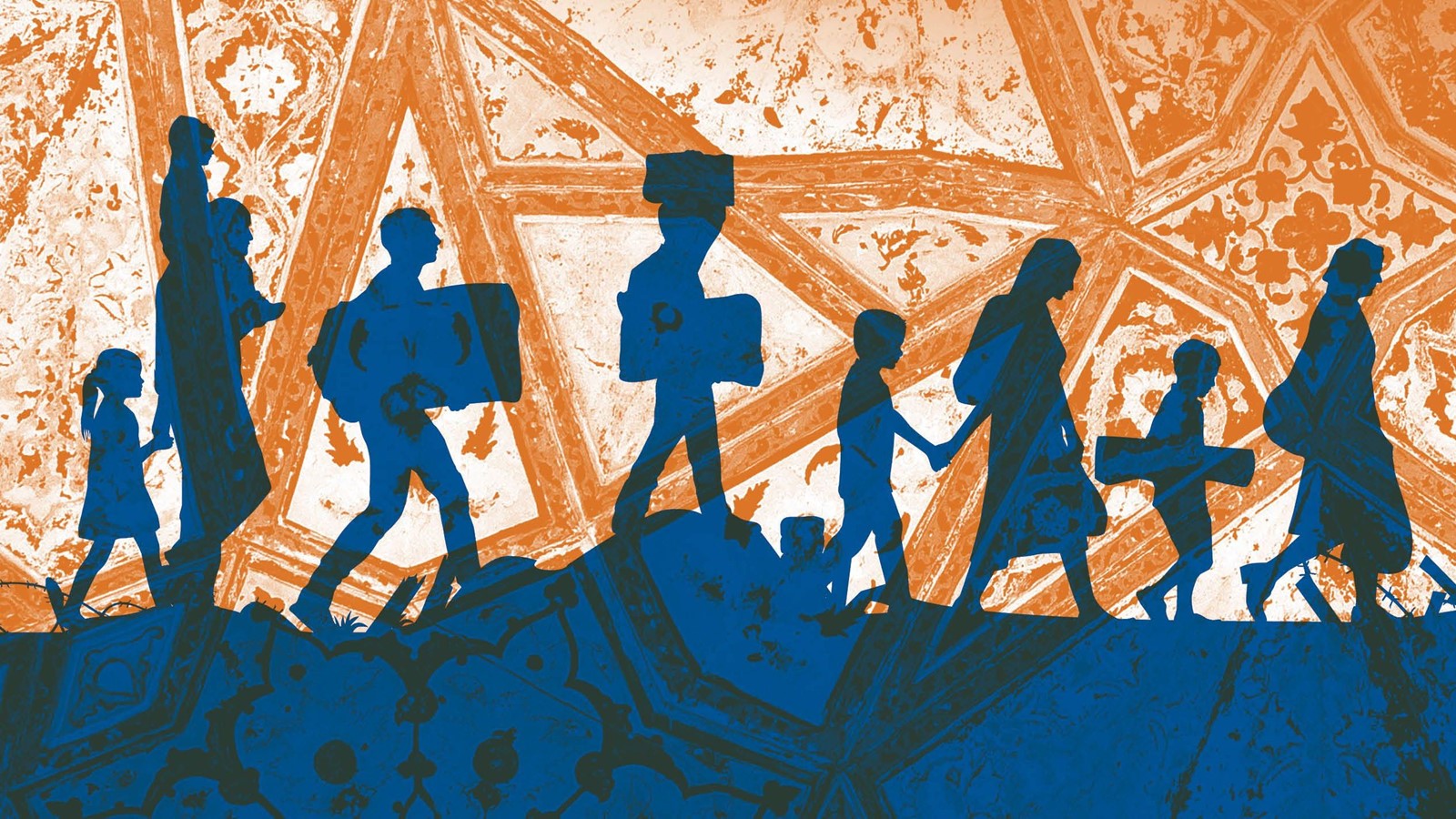In this issue
Features
Special focus
On the supportive role of Islam in working with refugees, asylum seekers and vulnerable migrants (free article)
Sushila Dhall describes the spiritual resources of the clients she works with
Opinion
Mindfulness and meditation
John Rowan explores the differences between mindfulness and meditation
Perspectives
Culture, spirituality, reflexivity, and funeral rituals
Valda Swinton reflects on the impact of culture on her life and research
People
The therapeutic struggles of self healing
Esther SM Cohen looks at the important topic of self-care for counsellors and therapists
Perspectives
In search of safety: gods, gold, guns, glamour
Edwin Salter offers his thoughts on how we seek protection
Research
Reclaiming the spiritual in reflective practice groups for clergy
Peter Madsen Gubi describes the benefits of supportive groupwork for clergy
Regulars

A pdf version of this issue is available from the Thresholds archive
Welcome from the editor
I find myself writing this editorial the weekend following the UK general election and there’s a sense of shock in the air. It seems people want change. I hear the word ‘chaos’ a lot in news bulletins. I wonder what will emerge from these chaotic times. I studied biochemistry at undergraduate level, and entropy is often a necessary prerequisite for creative change. Things fall apart and then there is the possibility of new combinations and compounds. It can be turbulent during periods of change … things get shaken up.
A question we might ask our clients is ‘Where do you find refuge?’ How do we find places of safety in our lives? If we are practitioners of certain spiritual traditions, we might turn to churches, monasteries, mosques and temples as our refuges. They may be places where we can retreat from danger and replenish ourselves, so we have the strength to return to the world. An important area where we can support our clients is to encourage them to (re)discover places, people, things that they can turn to in times of distress.
Sushila Dhall writes about her work with Muslim refugees in Oxford. Her moving article highlights how a client’s beliefs can support and protect them in the most challenging of circumstances. How can a community support a vulnerable group of people trying to start again in a foreign country? We, as counsellors and therapists, need to be able to meet our clients and honour their points of view in order to offer them as much support as we can.
Mindfulness does seem to be everywhere these days. I’m always surprised by the number of colouring books with the word mindfulness in their titles, available in bookshops. Mindfulness is one part of the Buddhist path. John Rowan offers
a critical article looking at aspects of mindfulness and comparing the secular approach with other techniques encountered elsewhere. He points out the limitations of this approach. I struggle with the word ‘mindfulness’ and feel much is lost in translation. The Chinese/Japanese character for the word meaning mindfulness shows a combination of head and heart. I encounter many people who think that mindfulness means ‘stopping thinking’.
Edwin Salter explores the topic of safety. What do we turn to in times of crisis? It is interesting to look at where we find our sense of security. I must confess I don’t feel safer when I see heavily armed police officers standing outside the Ashmolean Museum in Oxford. We turn to insurance policies to cover us in every circumstance.
When I was living in Japan, I found the Japanese approach to death encouraged me to question my own views about death and dying. Valda Swinton’s article, on her cultural background and how it has impacted her research, is fascinating. The way we cope with death often tells us a lot about our cultures.
Working as counsellors and therapists can have its hazards. We often become very skilful at being compassionate towards our clients, but many counsellors and therapists struggle to find the same compassion towards themselves when faced with difficulties. Esther Cohen’s article about self-healing is an honest exploration of her own struggles to be kind to herself.
The clergy face particular challenges in their work and need to find support. Reflective practice groups for the clergy are one way of providing safe spaces for facing difficulties in a challenging profession. Peter Gubi reflects on his research with some touching clinical vignettes.
The Buddhist teacher, Pema Chödrön, offers some words of wisdom: ‘Often in our daily lives we panic. We feel heart palpitations and stomach rumblings because we are arguing with someone or because we had a beautiful plan and it’s not working out. How do we walk into those dramas? How do we deal with those demons, which are basically our hopes and fears? How do we stop struggling against ourselves? The point is that we can dissolve the sense of dualism between us and them, between this and that, between here and there, by moving toward what we find difficult and wish to push away.’1
Amanda Anderson, editor thresholds.editorial@bacp.co.uk
Reference
1. Chödrön P. When things fall apart: heart advice for difficult times. Boston and London: Shambhala; 1997.
